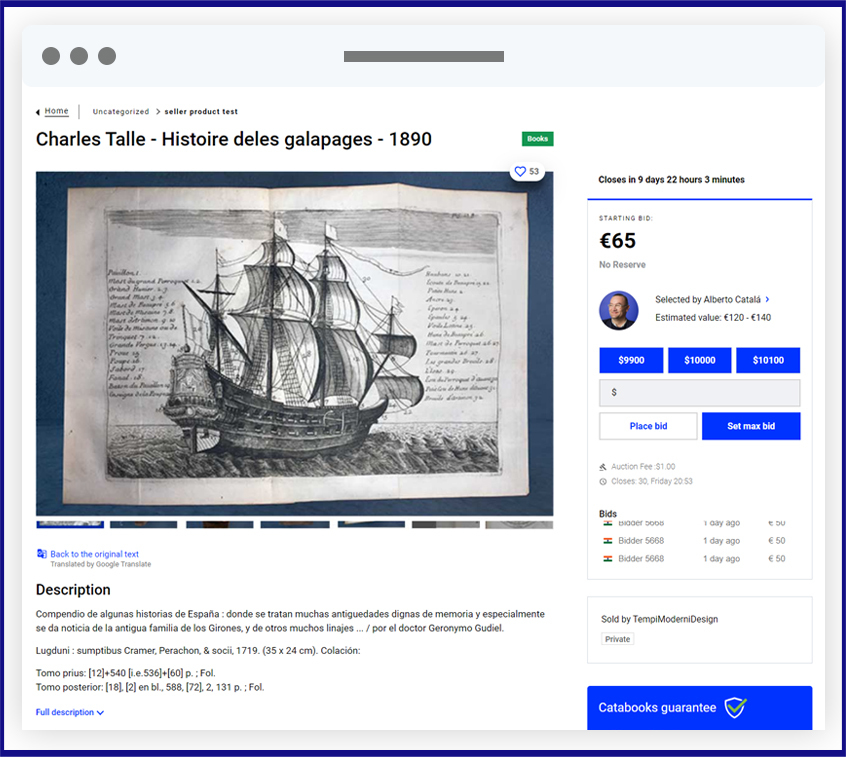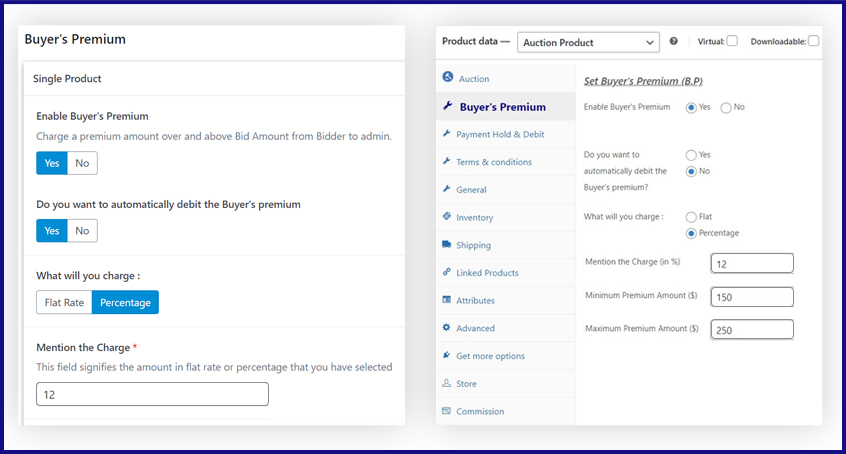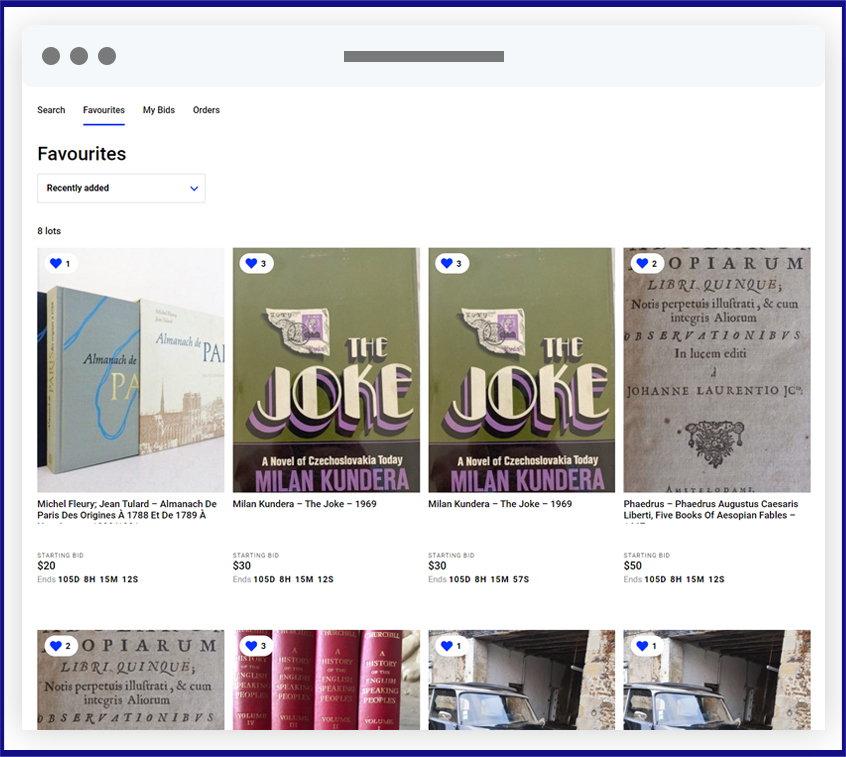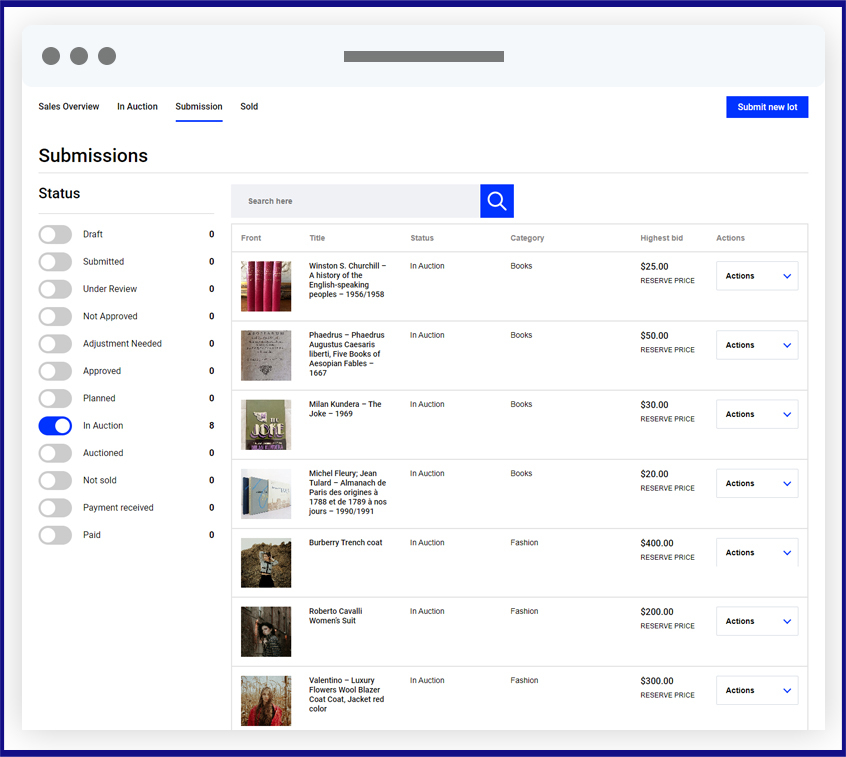What Do Auctioneers Make? Inside Their Earning Secrets

- How Much Does Auctioneers Make? Key Insights into Their Income and Earnings Potential
- Wrapping up,
With their charismatic gavel-wielding performances, auctioneers are the unsung heroes behind the scenes of various auctions, from art and real estate to charity events. However, many wonder, How much does auctioneers make.
This comprehensive article will explore the intriguing world of auctioneer earnings while delving into the role of auctioneer software, auction scripts, and nonprofit auction software in shaping their income. As we navigate the financial landscape of auctioneering, we’ll discover technology’s crucial role in optimizing their earnings.
Earn Big Money with Ultimate Auctioneer Software
Earn listing, commission and buyers premium from your bidders and seller and maximize earnings.

How Much Does Auctioneers Make? Key Insights into Their Income and Earnings Potential
The dynamic hosts of auctions, known as auctioneers, make their living through a combination of fees and commissions. These sources of income are the foundation of an auctioneer’s profits and are impacted by several variables worth investigating.
Firstly, a large amount of an auctioneer’s revenue comes from commissions. Usually, a portion of the item’s final sale price is used to pay these commissions. The precise commission rate is dependent on several factors and can vary greatly.
One of the main factors is the kind of auction; for instance, real estate auctions frequently feature properties with higher values and, as a result, higher commission rates. Conversely, automobile auctions might feature items of lesser value, meaning the auctioneer receives a smaller commission.
Moreover, the experience level of an auctioneer is a crucial factor in establishing their commission rates. A reputable and experienced auctioneer may command a higher percentage because of their experience and track record. On the other hand, newcomers to the field may begin with lower commission rates to establish themselves.
Auctioneers may charge flat fees for their services in addition to commissions. These fees, distinct from commissions, can be used to pay for marketing, administrative, and auction setup costs. Different auctioneers and auctions may have other fee structures; some offer a combined commission and fee package. Auctioneers and their clients should be aware of this fee structure as it clarifies the financial aspects of their engagement.
Understanding these essential income sources helps people curious about auctioneer earnings or interested in the profession understand the critical components of the auctioneer’s income.
How Much Does Auctioneers Make? The Impact of Auctioneer Software
The auction industry has entered a new era of efficiency and effectiveness thanks to auctioneer software. Because it streamlines the auction management process, this specialized software is essential to increasing an auctioneer’s profits.
Auctioneer software includes many tools and features to improve the whole auction experience. These software solutions automate many administrative tasks, such as tracking bids, managing bidder registration, cataloging items, and automating payment processes. Thanks to this automation, auctioneers can handle more auctions, which could increase their overall revenue and save time.
Moreover, auctioneer software contributes to improving the experience of bidders. This software’s integration with online bidding platforms enables bidders to participate from a distance, broadening the auction’s audience and raising the number of possible purchasers.
The competition for items increases as more bidders join, frequently resulting in higher final sale prices. Auctioneers receive larger commissions due to these higher sale prices because their compensation is typically based on a percentage of the sale value.
 Auctioneer software(Theme) Auction Detail Page
Auctioneer software(Theme) Auction Detail Page
Moreover, real-time data tracking and analysis are made more accessible by auctioneer software. Auctioneers can track bidding patterns, determine bidders’ preferences, and modify their tactics accordingly. This data-driven strategy may result in more competitive auction scripts and a more favorable industry environment, boosting earnings.
In conclusion, auctioneer software has a significant effect on revenue. It also simplifies operations by increasing the auctioneer’s reach, raising sale prices, and enabling data-driven decision-making. It lowers administrative burden, which increases the possibility of making more money.
How Much Does Auctioneers Make? Exploring Auction Scripts and Their Influence
An auctioneer’s performance revolves around their auction scripts. These painstakingly constructed stories direct the course of an auction, amuse the spectators, and maximize the likelihood of competitive bidding.
Sophisticated auctioneers are aware of how vital auction scripts are to their profits. Whether it’s a charity auction supporting a worthy cause, a high-stakes real estate auction, or an art auction featuring masterpieces, these scripts are customized to fit the particular event.
In addition to keeping the audience interested, a skillfully written auction script creates a sense of urgency and excitement that encourages bidders to go above and beyond and place higher bids.
Auction scripts have a significant impact on an auctioneer’s earnings. With the help of engaging writing, an auctioneer can create a thrilling atmosphere that encourages competitive bidding and ultimately raises final sale prices.
The auctioneer’s commissions went up as a result. On the other hand, a poorly written or uninspired script can alienate the audience and result in lower bids and lower profits.
Skilled auctioneers frequently devote considerable time and energy to honing their scripts or modifying them to fit the items up for auction. For example, a script for an art auction might emphasize each piece’s artistic merit and historical significance to encourage bidders to place high bids. However, a real estate auction script may highlight a property’s unique qualities and potential as an investment, encouraging bidders to make higher offers.
Auction scripts are more than words—effective instruments affecting an auctioneer’s revenue. They influence the auction’s dynamics, increase bidder participation, and directly affect the sale prices, affecting the auctioneer’s take-home pay.
Special Offer – Limited Time Only!
Rev Up Your Savings: Get 10% off Essential Ultimate Auction Software!
Fill the form and receive directly to your mailbox a discount code.
"*" indicates required fields
How Much Does Auctioneers Make? Nonprofit Auction Software and Charitable Auctions
Within the auction industry, charitable auctions offer a unique niche wherein auctioneers can attain financial gain while supporting worthy causes. These activities help nonprofit organizations raise money for their philanthropic endeavors, and nonprofit auction software is essential to smoothly planning and administrating these events.
Software for nonprofit auctions is made specifically to simplify the unique needs of charitable auctions. It makes work like online bidding, item cataloging, donor tracking, and attendee registration easier. This specialist software automates these procedures so that auctioneers can concentrate on interacting with the public, raising prices, and producing an unforgettable event.
One of its main advantages is the ability of nonprofit auction software to enable online bidding. In the current digital era, participation online is essential to extending the reach of charity auctions.
The ease of involvement for remote bidders results in a larger pool of possible donors and higher bids. Final sale prices typically rise as the auctioneer encourages bidder competition, which raises the auctioneer’s commissions and fees.
Moreover, features that promote charitable giving are frequently included in nonprofit auction software. Attendees can bid on experiences or goods with the proceeds going to the charity, make direct donations, and track their contributions in real-time.
These elements improve the auction’s charitable component while also creating a lively and upbeat environment that may encourage more donations and, as a result, increase the auctioneer’s earnings.
The distinctive dynamics of charitable auctions are advantageous to auctioneers participating in them. They get money from fees, commissions, and satisfaction from helping a good cause. In charitable auctions, an auctioneer’s earnings are directly impacted by the auction’s success, measured in funds raised and bidder engagement.
To sum up
To sum up, nonprofit auction software has transformed how charitable auctions are managed, allowing auctioneers to plan and execute these events quickly. This software helps charitable auctions succeed and positively affects an auctioneer’s income by promoting online participation, charitable giving, and enhanced bidder engagement.
Maximizing Auctioneer Earnings:
Auctioneers should take a multifaceted approach that includes a variety of strategies and considerations to maximize their earnings.
 Buyers Premium Setting in Car Auction Software
Buyers Premium Setting in Car Auction Software
Establishing a solid reputation in the field is crucial, first and foremost. Auctioneers with a history of successful sales and pleased customers tend to fetch higher fees and commissions. Good word-of-mouth recommendations and a strong web presence can boost an auctioneer’s reputation and impact their earning potential.
Improving auction scripts constantly is another essential component. Engaging and dynamic scripts can increase final sale prices by fostering competitive bidding. The time spent honing scripts to fit various auction formats and target audiences can make a big difference in an auctioneer’s earnings.
Adopting auctioneer software is essential for streamlining processes and boosting productivity. Auctioneers can handle more auctions and earn more money by automating administrative tasks. Furthermore, the information and perspectives offered by this kind of software can guide strategic choices, assisting auctioneers in honing their strategy and increasing their profits.
Earn Big Money with Ultimate Auctioneer Software
Earn listing, commission and buyers premium from your bidders and seller and maximize earnings.

Investing in a variety of auction kinds can also provide several revenue streams. A unique opportunity for auctioneers to maximize their earnings and use their skills is presented by charity, art, real estate, and automobile auctions.
Finally, embracing technological innovations and keeping up with business trends is critical. Virtual bidding and online auctions are becoming increasingly common, and auctioneers who keep up with these trends might find new ways to increase their earning potential.
Geographic Variations :

Depending on where they live, auctioneers’ incomes can differ significantly. Because of their higher population densities and greater affluence, urban centers typically present auctioneers with a broader range of opportunities.
The need for auctioneers adept at handling valuable items and running high-profile auctions is significantly greater in these urban centers. As a result, auctioneers in these regions can demand more significant fees and commissions. Their profits are derived from the goods’ uniqueness and customers’ willingness to shell out top dollar for superior auctioneering services.
Specialized Auction Niches:
Auctioneers have unique opportunities to maximize their earnings by participating in specialized auction niches. Due to the exclusivity and technical knowledge needed, these niches frequently command higher commissions and fees from collectors and enthusiasts passionate about particular types of items.
For example, highly profitable events are luxury and collectible auctions featuring rare coins, classic cars, or fine wine. Wealthy collectors prepared to shell out top dollar for exceptional pieces are drawn to these auctions. Unlike auctioneers who oversee more general auctions, auctioneers who specialize in these areas may find their earning potential significantly higher.
Promotion and Marketing:
Using efficient marketing and promotion techniques is essential to an auctioneer’s capacity to maximize profits. Regardless of the specialty they pursue, auctioneers must draw participants to their sales from both sellers and bidders.
Online marketing has become indispensable in the digital age. Auctioneers ought to have a robust online presence, including a business website highlighting their qualifications and prior accomplishments. Reaching out to prospective customers and bidders through social media can significantly increase their reach.
 Buyer Dashboard Ultimate Auction Software(Theme)
Buyer Dashboard Ultimate Auction Software(Theme)
Email marketing is an additional effective tool. Clients and bidders can be kept interested by creating a database of interested parties and providing frequent updates about upcoming auctions. A more excellent turnout at auctions can result in higher commissions and fees, which can be caused by effective email marketing.
Traditional marketing techniques like print advertising, flyers, and direct mail can still be successful, particularly for local auctions. An auctioneer can increase their exposure and reach by combining offline and online marketing techniques.
Wrapping up,
There are several ways for auctioneers to increase their profits in the ever-changing world of auctions. They have a variety of tactics at their disposal, including knowing commission-based income, using state-of-the-art auctioneer software, writing engaging scripts, and investigating nonprofit auctions.
Location and specialization can significantly impact Income in niche markets, with metropolitan areas and specialized niches providing rich opportunities.
Attracting participants to auctions is mainly dependent on effective offline and online marketing. To remain competitive, auctioneers must adjust to new technologies like blockchain and NFTs.
To thrive in this dynamic industry, auctioneers must cultivate their negotiating abilities, uphold a solid reputation, and remain flexible. In the end, auctioneering success is more than just making money—it’s about leaving a lasting impression on everyone who participates.
Earn Big Money with Ultimate Auctioneer Software
Earn listing, commission and buyers premium from your bidders and seller and maximize earnings.

Frequently Asked Questions
Get your own Auction Today!
Choose Your Plan
Easy Setup
5 Star Support





